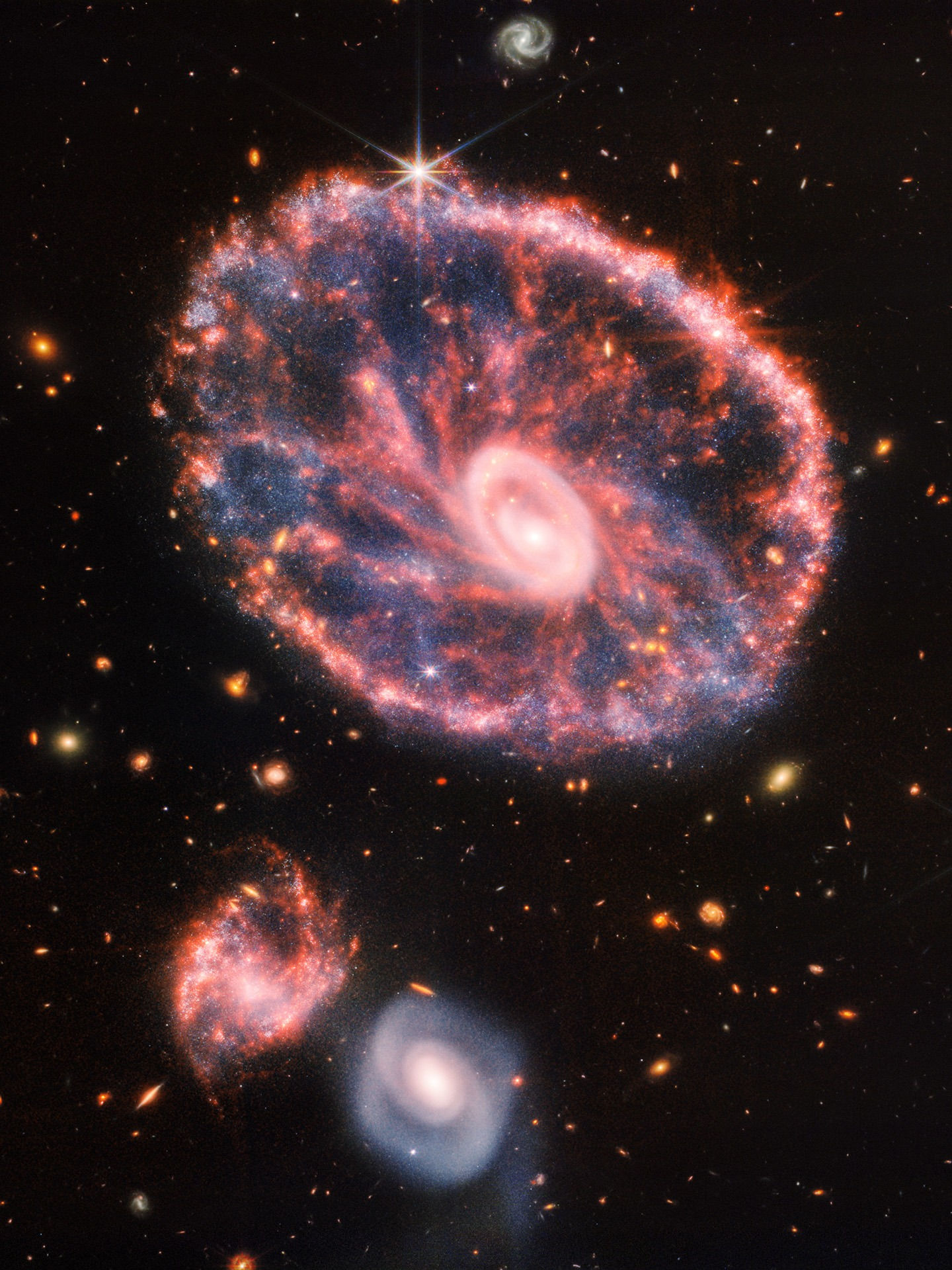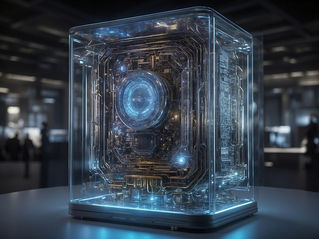Voyager 1 was launched on the 5th of September 1977, exactly 42 years ago! Let us celebrate the anniversary of the lunch of our most distant cosmic representative with a theoretical article about the possibility of interstellar travel. First of all, the spacecraft is at a distance of 146.74 AU from Earth at the moment, and has passed the heliopause. After exploring the gas giant planets Jupiter and Saturn, as well as the Moon of Saturn: Titan, the spacecraft begun a journey without return, which may last for millions of years. Even today the spacecraft is sending back to Earth invaluable information about the nature of interstellar space with 4 instruments still operating:
Cosmic Ray Subsystem (CRS)
Low-Energy Charged Particles (LECP)
Magnetometer (MAG)
Plasma Wave Subsystem (PWS)

Voyager 1 is currently one of a total number of 5 missions heading for the interstellar space. The other 4 spacecrafts are:
Voyager 2
Pioneer 10
Pioneer 11
New Horions
Due to the strong gravitational assistance from Jupiter and Saturn, Voyager 1 is also the fastest among the other 4, as it travels with a speed of 17 km/sec (with respect to the Sun). In comparison New Horizons has achieved a speed of "only" 14 km/sec. Voyager 1 also carries a copy of the "Golden Record" that includes selected greetings in 55 languages, pictures and music.
5 Key Dates:
Sept. 5, 1977: Launch
March 5, 1979: Jupiter flyby
Nov. 12, 1980: Saturn flyby
Feb. 17, 1998: Most distant human object
Aug. 1, 2012: Interstellar space entry
Important Findings:
Voyager 1 discovered 5 new moons (Thebe, Metis, Prometheus, Pandora and Atlas), and photographed Saturn’s moons: Titan, Mimas, Enceladus, Tethys, Dione, and Rhea. Titan was found to have liquid on the surface, and the presence of nitrogen, methane, and other hydrocarbons indicated a possibility for life friendly environment. Because of the close Titan flyby, the spacecraft was not directed to Uranus and Neptune, as was Voyager 2. A famous picture taken from Voyager 1 is the first "portrait" of our solar system as seen from far away:

Voyager 1 revealed to us details about the volcanic activity of a very active moon of Jupiter called "Io":

It is believed that Jupiter's strong gravity, and the elliptical orbit of the moon, is the energy source of the multiple active geological features of Io. Finally, Voyager 1 sent us important information about Jupiter's active atmosphere and discovered new rings in Saturn.
Voyager 1 also reminds to us how easy is interstellar travel: once you have achieved the escape velocity there are no energy requirements in space! Even a spacecraft with a smart energy source, could achieve very high speeds even with a low but continuous thrust. From the human perspective, such interstellar trips would have meaning only if we could achieve velocities near the speed of light, since they would allow sufficient time dilation that would keep the astronauts alive for the duration of the journey. Such a trip would require a really intelligent energy source more than a truly advanced technology overall. The thrust would have to be low enough at all times though, otherwise the huge accelerations would kill the astronauts!
Our guess is that by the time the travel towards an other galaxy will become technologically possible, humans will also have achieved advances in terms of artificial intelligence (it is a matter of time, that our brains will be programmed into a silicon computer), and extended lifespan, and thus the trip will be easy! After all a computer is much more elegant than a biological machine: it does require energy but it has much lower maintenance needs: There will be no need for oxygen, sleep, sex, food or physical exercise or even taking care of huge accelerations. An intelligent computer may hibernate forever and it can live forever! Even emotions themselves, although they might be regarded from some people as something that belongs to the sphere of higher mentality, these people are in fact wrong. The most developed creatures use their logic in place of their emotional reactions. I have always questioned myself what would entertain God. Perhaps the ideal intellectual happiness is in being able to understand the truth, and have the mental power to get rid of all bugs out of the brain that cause emotional distress. After all, all human misery is at the end of the day caused by ignorance, and not being able to understand the ultimate truth.






























































































Comments